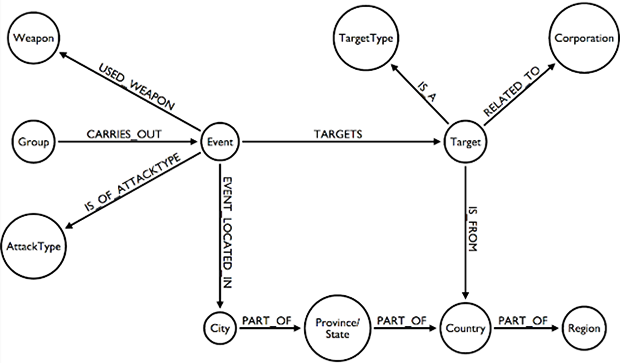Sherlock at scale: Law enforcement enters the connected age

Graph analysis uncovers contextual information inherent in connections and can yield incredible insights that do not surface through other primitive analyses.
“Crime is common,” Sherlock Holmes said in the 1892 novel, The Adventure of the Copper Beeches. “Logic is rare. Therefore it is upon the logic rather than upon the crime that you should dwell.”
Holmes famously used his intellect to make deductions about crimes and solve them. For him, logic was the linchpin, helping him associate disparate pieces of evidence. For law enforcement agencies today, it’s not only logic, but connections and relationships that are key in successfully using data as the foundation of information, knowledge and wisdom for decision-making.
So how can today’s law enforcement agencies leverage technology to mitigate crime and do their jobs better in the connected age? Here are three ways.
Shifting from reactive to “predictive” policing
For years, businesses have used data to anticipate market conditions or industry trends. Today, investigators and law enforcement officials are beginning to leverage technology-assisted policing to help them better anticipate crime.
Predictive analytics software can help reduce crime by enabling police departments to better direct patrol routes. While these types of tools, such as the PredPol predictive policing platform, don’t replace the insights of veteran officers and crime analysts, they help reduce time spent in court or filling out reports, freeing officers to spend more time in their communities.
Another common application that drives the predictive policing algorithm is “repeat victimization.” When it comes to burglary, for example, offenders will often return to places where they’ve been successful in the past. That means a house broken into today is at greater risk of being broken into again tomorrow. Additionally, criminals are often connected to other offenders in a network, so putting this data into a social graph is a helpful way to understand how crime syndicates, gangs and other criminals may be connected.
Continued evolution of detection and surveillance technologies
While police have used surveillance technologies for years, the evolution of these tools has helped to reduce cost and also significantly improve effectiveness. Just one example is the development of artificial intelligence and the ability of biometric technology -- such as face detection -- to grant or restrict access to facilities or data. Another is thermal imaging technology, which is becoming increasingly reliable and providing additional detail law enforcement can use.
Unmanned aerial vehicles or drones are also becoming an important part of the law enforcement tech toolkit, with Germany slated to take the lead on a European Union project to create a new generation of drones, expected by 2025. Drones can help with search and rescue, monitor correctional facilities, investigate suspects, collect evidence, take pictures of crime scenes, create 3D renderings of crash sites and even help control crowds.
Dealing with massive amounts of data generated from drones could be seen as a challenge, especially when it comes to the burden on servers or IT, but it’s also a massive opportunity for law enforcement. The mindset of “what can we learn from this data?” will become an important part of law enforcement’s future.
Harness the power of graph technology
Graph analysis (network science) allows organizations to see the contextual information inherent in connections. Understanding not just data, but how that data is intricately interrelated -- directly and indirectly -- can yield incredible insights that do not surface through other primitive analyses. Identifying sentiment, clusters, neighborhoods, centrality and transitive linkage (paths) between records is all straightforward with graph analysis.
The fundamental premise is startlingly simple: The idea hinges on who knows who. If person X has come to the attention of the authorities, then knowing other members of X’s network might be of interest. What places or items has X been in contact with? Who else has been in contact with those in a certain time frame? Who else might X have influenced?
While graph technology can be used to better support the police and other law enforcement officials, it also has applications for other security and investigative use cases like anti-terrorism, border control, and social services. Below is a graph model I made a few years ago as part of some experiments I ran with the Global Terrorism Database, which at the time tracked the 140,000 terrorist attacks from 1970 until 2014.

Source: Bruggen blog
This representation makes the dataset feel very natural and creates a simple way to talk about or sift through the data, making the technology particularly useful for police and intelligence work.
Technology and policing go hand-in-hand
With so many powerful advances in technology, modern law enforcement is not only able to better allocate staff and resources, but teams are also able to more accurately connect important data points such as phone records, financial transactions, fingerprints, DNA, court records and more to contextualize the activities and associations among suspects.
From the implementation of the first successful two-way radio in 1933 to today’s body cameras and smartphones, law enforcement has always been at the forefront of using technology to improve public safety. As technology advances and we move into a more connected age, the burden is on all of us to ensure new tools are used responsibly, with privacy and security in mind, and for the greater good.





